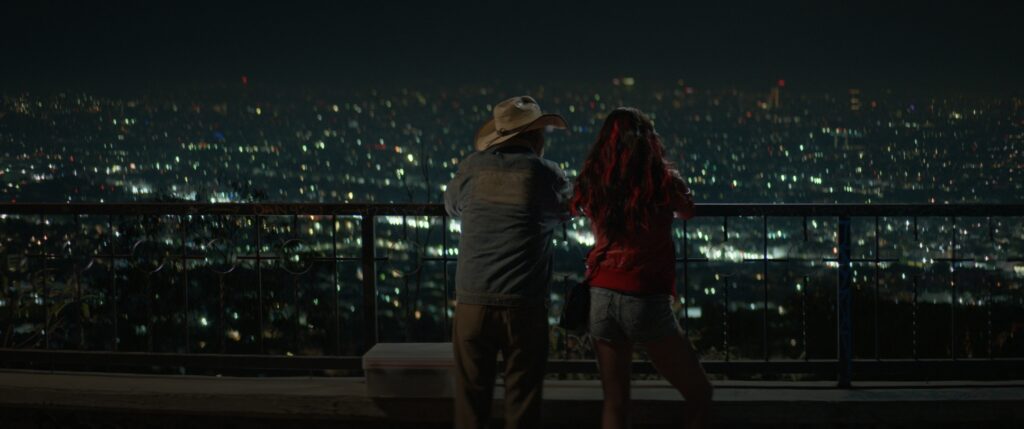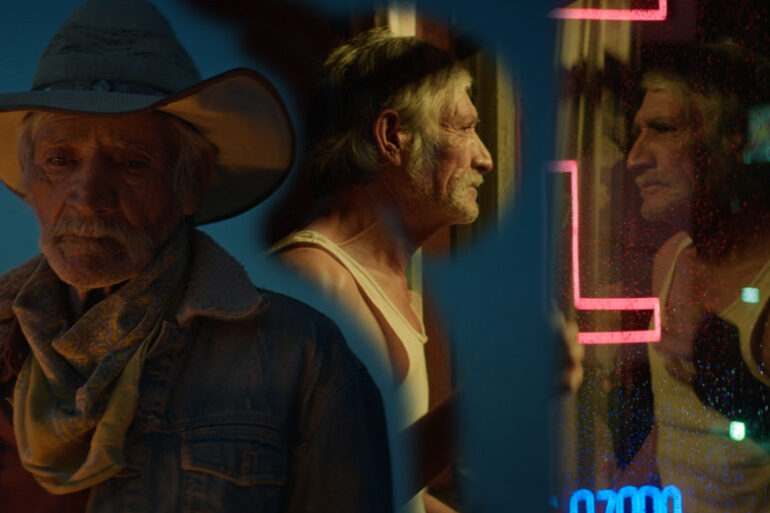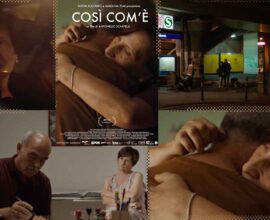Carlos Eichelmann Kaiser, una toccante storia di accettazione e comprensione
Emoziona per la sua delicatezza. È il racconto di un incontro tra un padre e una figlia che si specchiano l’uno nell’altro cercando di lenire il dolore che li ha segnati e che portano dentro. Sono i due lati di una medaglia: sono opposti in tutto, a partire dalla contrapposizione della vita rurale a quella cittadina, ma appartengono alla stessa fragilità ed essenza umana. È il film “Red Shoes” (durata 83 minuti) del cineasta messicano Carlos Eichelmann Kaiser, nato a San Luis Potosí nel 1980, in concorso alla Mostra del cinema di Venezia in Orizzonti Extra e che sarà al cinema grazie alla 102 Distribution. Protagonisti sono i bravissimi e meravigliosi Eustacio Ascacio e Natalia Solian. [Sotto l’intervista in inglese / Below the interview in English]
Carlos Eichelmann Kaiser, come nasce questa storia, che, oltre a dirigere, ha scritto assieme a Jofra GG e Adriana Gonzáles Del Valle?
“La storia nasce dalla volontà di voler fare qualcosa per parlare del rapporto con mio padre; a questa intenzione originaria ho aggiunto anche il desiderio di affrontare il problema della violenza di genere”.
Perché ha scelto un titolo così emblematico come “Red Shoes” che riporta alla battaglia contro la violenza sulle donne?
“L’ispirazione viene dall’opera di Elina Chauvet, che ha collocato le scarpe rosse negli spazi pubblici per simboleggiare la battaglia contro la violenza sulle donne”.
Come si è imbattuto in Eustacio Ascacio, attore che dà il nome al personaggio che interpreta?
“È stato un miracolo, l’ho visto in un video e ho capito subito che era lui: era perfetto, così simile al personaggio che stavo creando nella sceneggiatura”.
Nel film vediamo l’utilizzo della mascherina in città, come sono il Messico rurale e quello urbanizzato dopo la pandemia?
“Nelle zone rurali del Messico il Covid non è esistito, voglio dire che le persone o non se ne sono preoccupate o non hanno creduto nella sua esistenza. In città è un po’ difficile da spiegare, perché le persone che credono nell’esistenza del Covid usano la mascherina ma come accessorio: a volte la usano per bene, altre volte l’hanno solo appesa al viso”.
Questo è il suo esordio alla regia, come proseguirà il suo percorso cinematografico?
“Bene, sto cercando di fare il prossimo film nel 2023, nella stagione delle piogge in Messico. È la storia di un uomo ossessionato dall’idea di fare un miracolo”.

Carlos Eichelmann Kaiser, a touching story of acceptance and understanding
It thrills with its delicacy. It is the story of an encounter between a father and a daughter who are reflected in each other trying to soothe the pain that marked them and that they carry inside. They are the two sides of a coin: they are opposed in everything, starting from the opposition of rural life to that of the city, but they belong to the same fragility and human essence. It’s the film “Red Shoes” (duration 83 minutes) by the Mexican filmmaker Carlos Eichelmann Kaiser, born in San Luis Potosí in 1980, in competition at the Venice Film Festival in Orizzonti Extra and which will be in cinemas by 102 Distribution. The leading actors are the talented and wonderful Eustacio Ascacio and Natalia Solian. [On top the interview in Italian / Sopra l’intervista in italiano]
Carlos Eichelmann Kaiser, how was this story born, which in addition to directing you wrote together with Jofra GG and Adriana Gonzáles Del Valle?
“The story was born because I want to do something to talk about the relationship with my father, that is the original intention also talking about the gender-based violence”.
Why did you choose such an emblematic title as “Red Shoes” which takes you back to the battle against violence against women?
“The inspiration was the work of Elina Chauvet, she puts red shoes in public spaces to symbolize the fight against violence against women”.
How did you come across Eustacio Ascacio, the actor who gives his name to the character he plays?
“It was a miracle, I saw him in a video and I knew immediately it was him, he was perfect, so similar to the character I was creating in the script”.
In the movie, we see the use of the mask in the city, what are rural and urbanized Mexico like after the pandemic?
“In rural Mexico Covid didn’t exist, I mean the people didn’t care or didn’t believe in the Covid, in the city is something difficult to explain because they believe in Covid and use mask but they used as an accessory, sometimes they use the mask properly other times they just have the mask hanging on the face”.
This is your directorial debut; how will your cinematographic journey continue?
“Well, I’m trying to do the next film in 2023, in the rain season in Mexico; it’s the story of a man that is obsessed with the idea of doing a miracle”.





